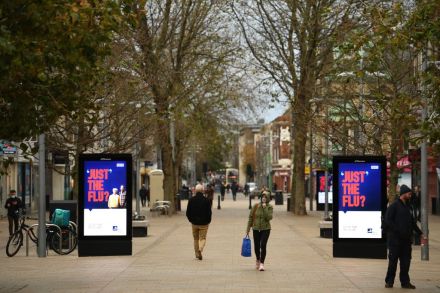A race against time: can the vaccine outpace the virus?
The next three months may well prove to be the hardest of the whole pandemic. The new variants of Covid-19 appear to be the wrong type of game-changer. After our national lockdown in March, infection levels started falling because of extreme measures — including closing schools, places of worship and non-essential retail. But the infectiousness of the ‘Kent strain’ suggests that as it becomes prevalent, a new lockdown might be unable to contain it. When ministers first locked down, they did so in the expectation of taming the virus. This time, it’s more in hope. Boris Johnson didn’t show us any graphs when he announced the latest lockdown. He didn’t



















